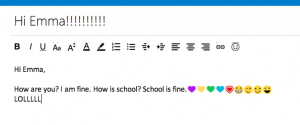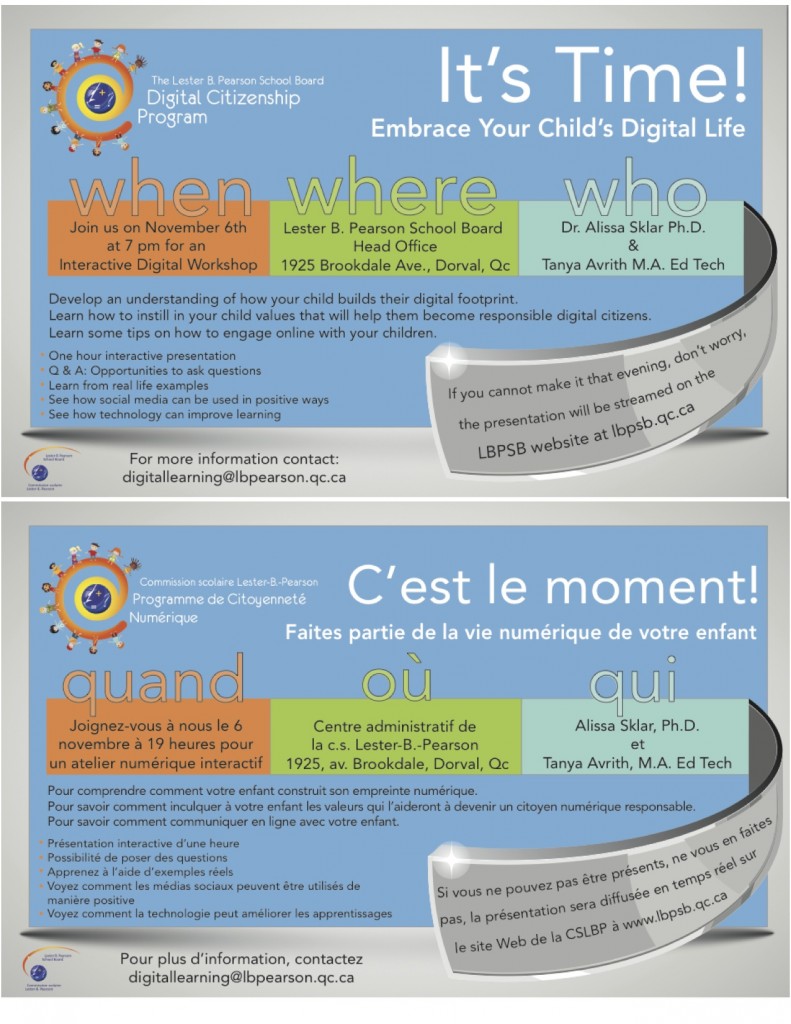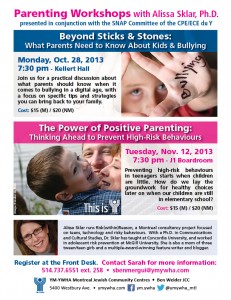 Your seven-year-old’s best friend is moving away. She’s really upset about it and wants to keep in touch. Can she have an email account? Pretty please? She promises to use it just to keep in touch with her friend. And maybe her grandparents. And her cousins in Florida. What about her camp friends, and the kid she met on the beach during winter break?
Your seven-year-old’s best friend is moving away. She’s really upset about it and wants to keep in touch. Can she have an email account? Pretty please? She promises to use it just to keep in touch with her friend. And maybe her grandparents. And her cousins in Florida. What about her camp friends, and the kid she met on the beach during winter break?
You know it’s the tip of the iceberg. Email is a powerful and immediate way to stay connected, but it also opens up a whole host of questions about safety online, from protecting one’s privacy to enabling the kind of digital communication that can easily be abused, misused or misunderstood. And it also invites questions about all kinds of other activities online, from Instagram to Tumblr and Facebook.
So what age is the right age for a first email account?
It’s a variation of the same question I often hear from parents at my workshops – what age is the right one for surfing the Internet, or getting a cellphone, or starting a blog, or online gaming?
My answer is always the same: there is no magic age when every kid is ready. You need to balance your family values, your child’s level of maturity and responsibility and your comfort level in supervising their activities.
However, I do think that introducing school-aged children to email at home — at a point where you feel comfortable — offers a golden opportunity to establish responsible use of online tools. Here are just some of the topics that you can discuss with your kids about using email:
- protecting passwords,
- manners, civility and “netiquette” online,
- how typed-out words on a screen may not convey nuance, sarcasm and irony the way spoken words do,
- trusting superficial identification – people can use email to pretend to be someone else,
- how digital conversations can be forwarded, copied or taken out of context without permission – always assume more than one pair of eyes may read what you write,
- digital permanence – you can never be sure anything you’ve written or posted is completely deleted.
If you do decide to allow your child to open an email account, consider implementing the following guidelines:
- parents should know their usernames and passwords, but ask that they don’t share that information with anyone else,
- request that they ask permission from parents before opening any new account,
- anything written out in a digital format is not to be considered private and off-limits to parents (if they want privacy, it should be written out longhand on paper),
- review emails with your child from time to time (not behind their backs, unless you think they might legitimately be in danger), not to read what their friends write, but so they doesn’t get fooled by spam, viruses and Nigerian princes,
- limit the places they use their personal email address, so they don’t become overwhelmed by sales pitches from companies eager to market to children,
- that they be good “e-friends,” respecting what others write,
- that over time, with demonstration of consistent good judgement and responsibility, parents will give their children additional increments of privacy online.
The goal is support and teach your children how to become good digital citizens — after all, this is the world they will inherit. They need to learn these healthy online habits somewhere, and it’s ideal if they are reinforced in the home. So go ahead and let your second-grader open her (or his) very own email account, but make sure s/he has the tools, resources and supervision to handle it responsibly.




